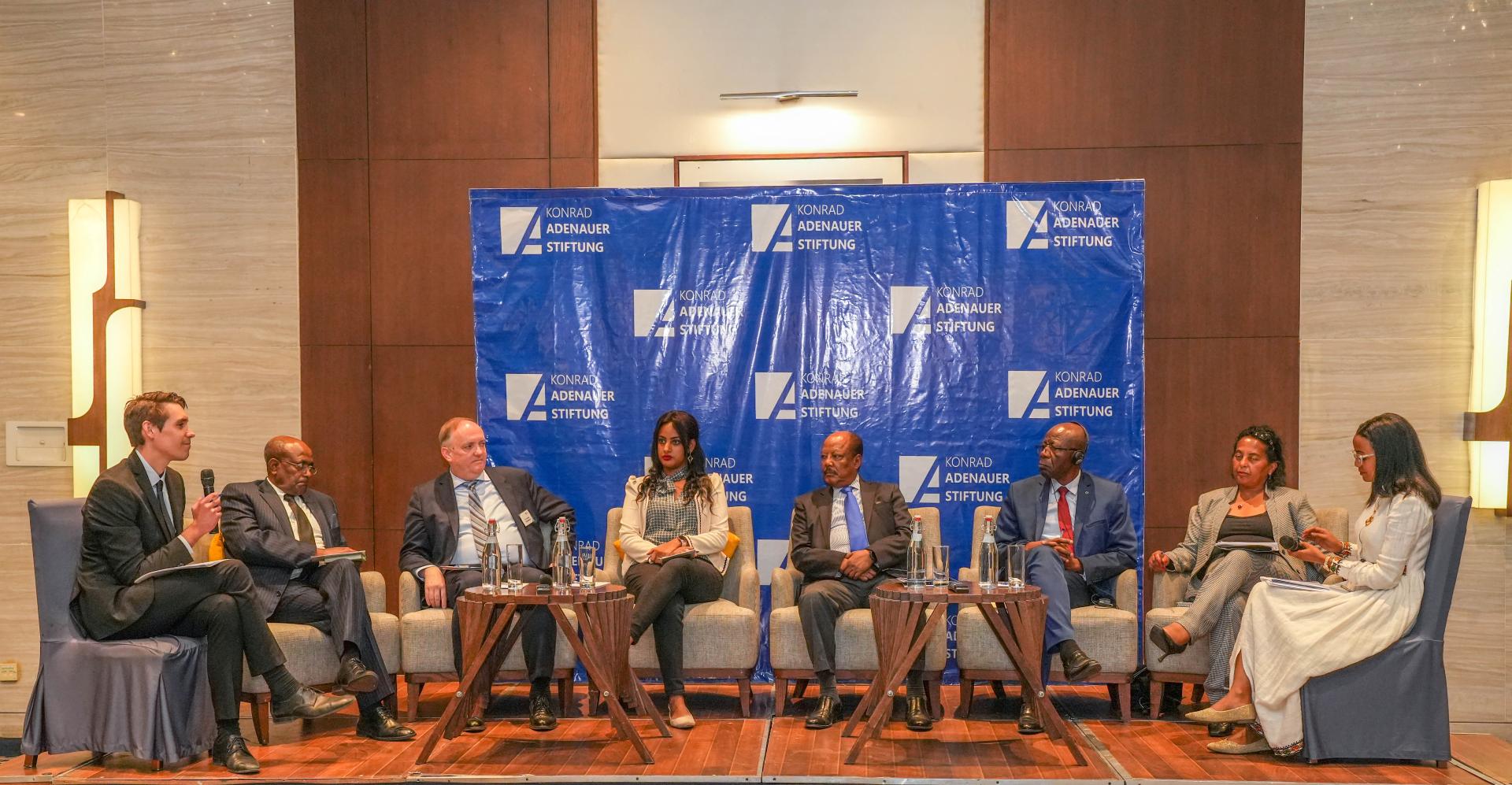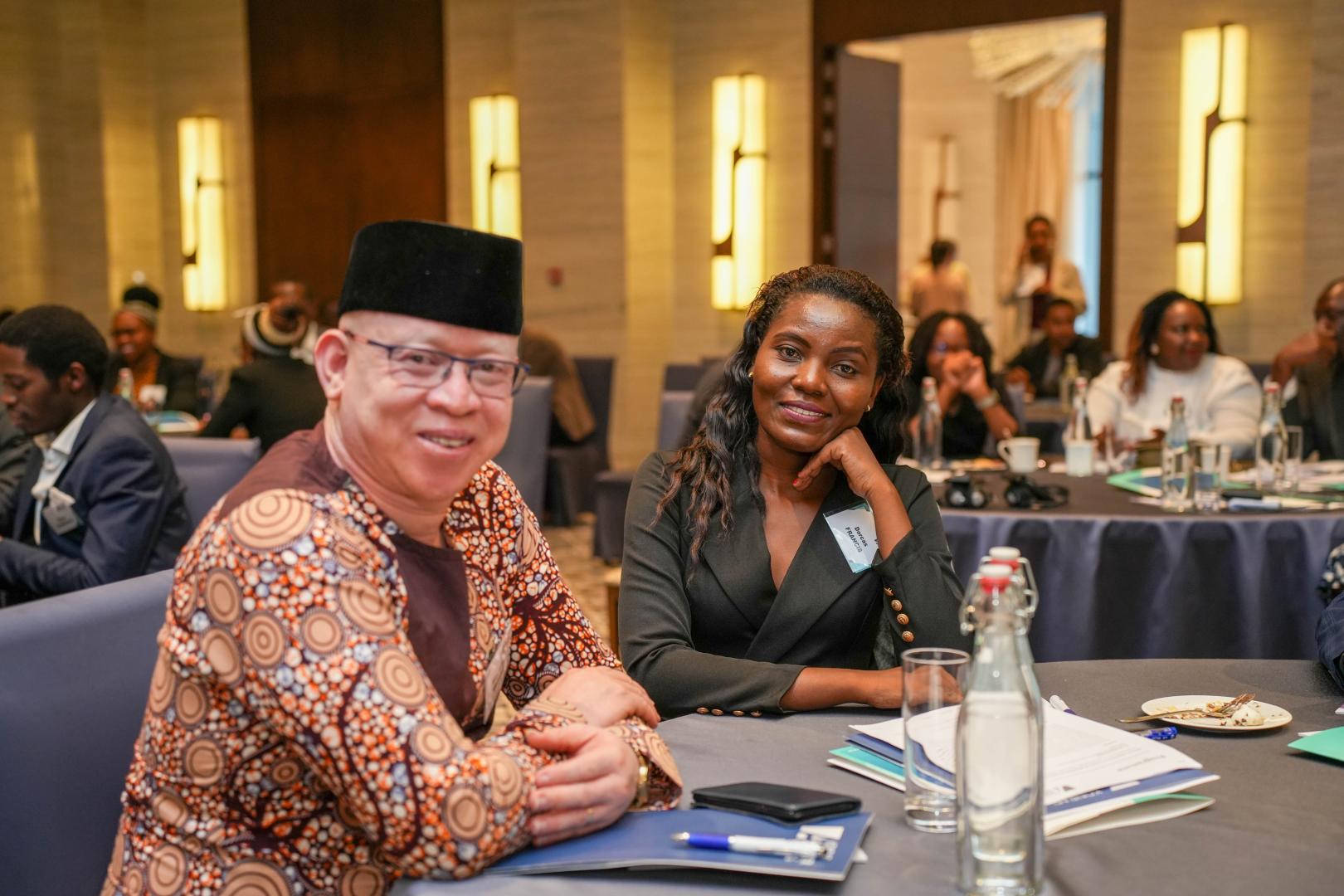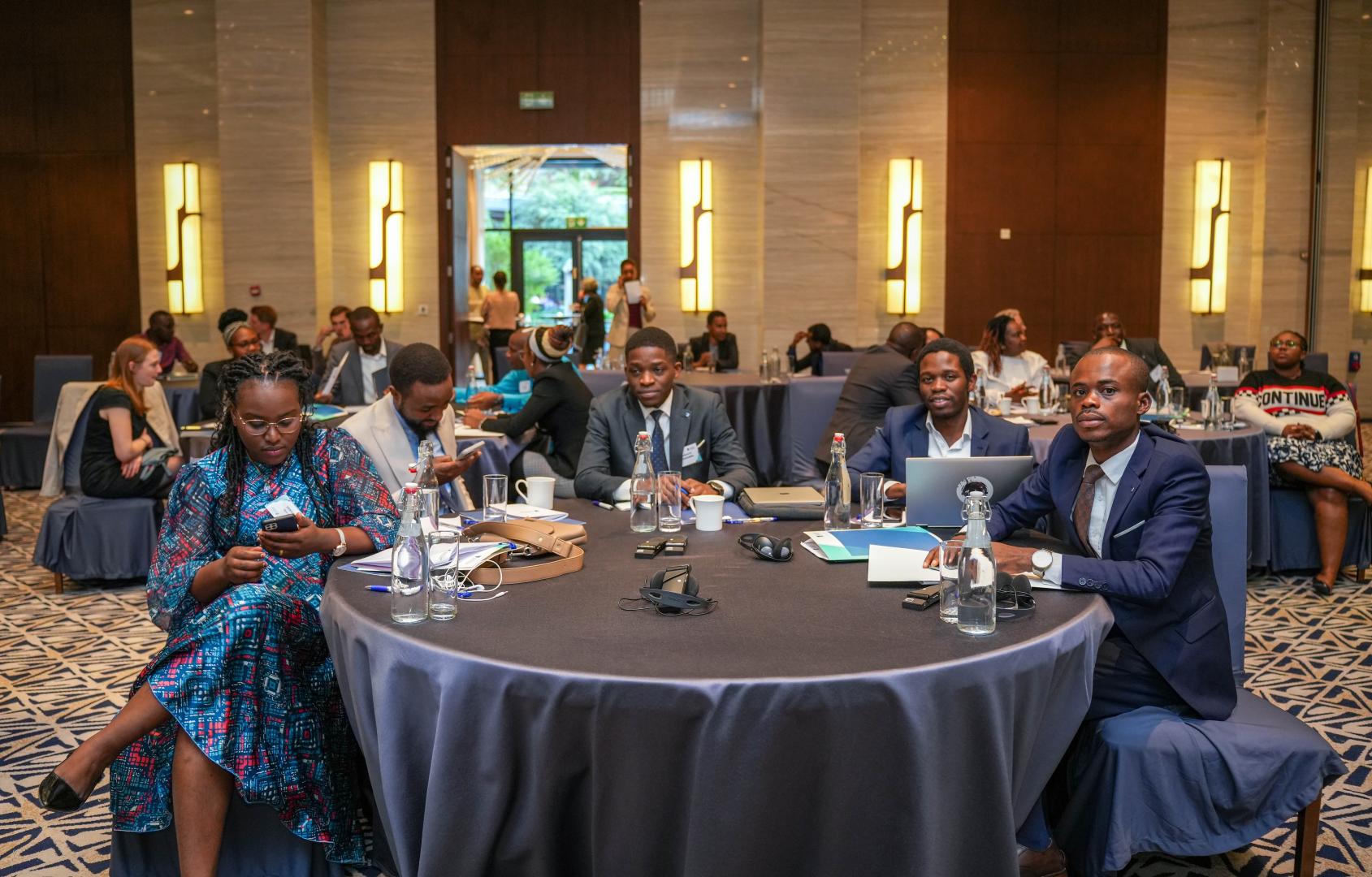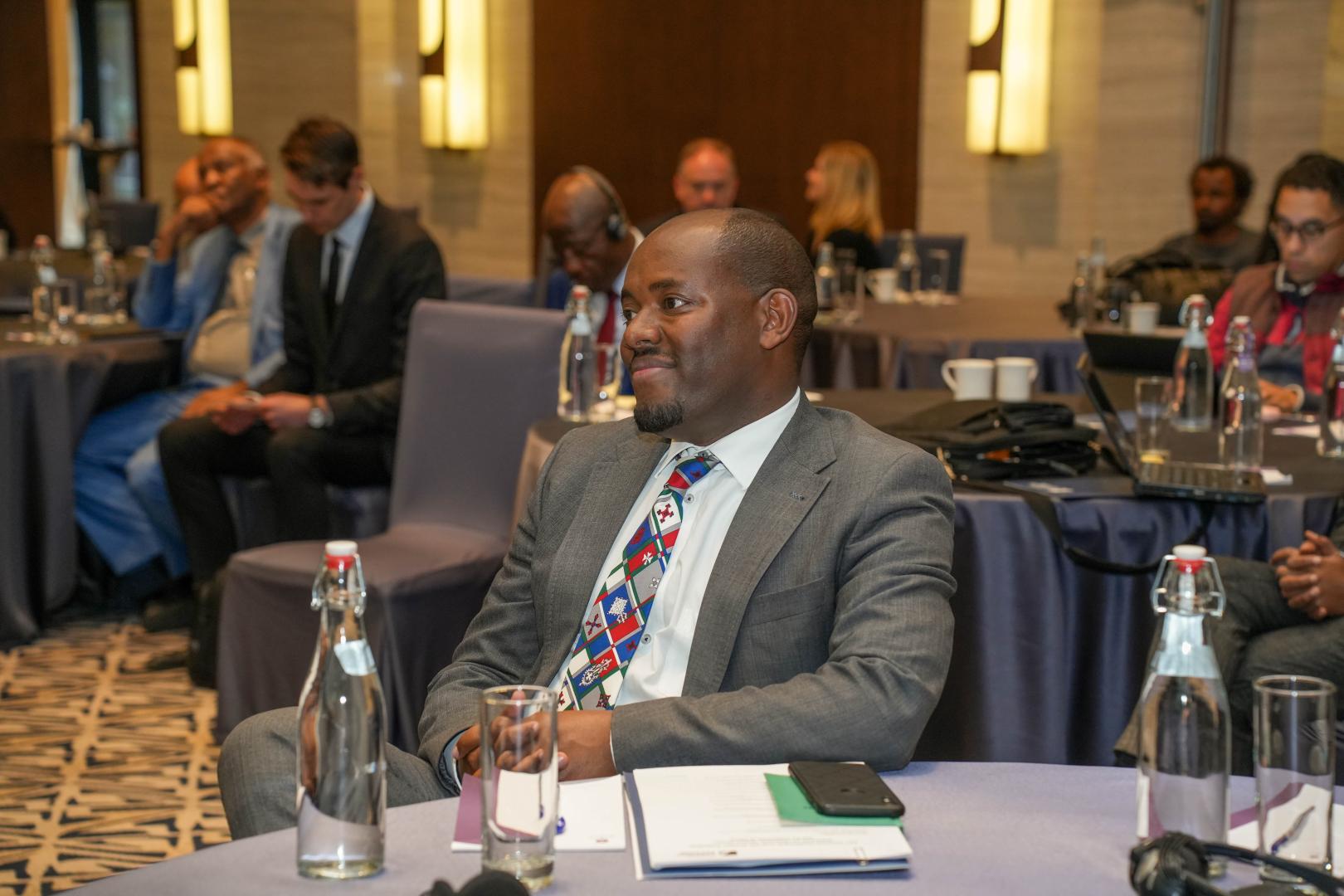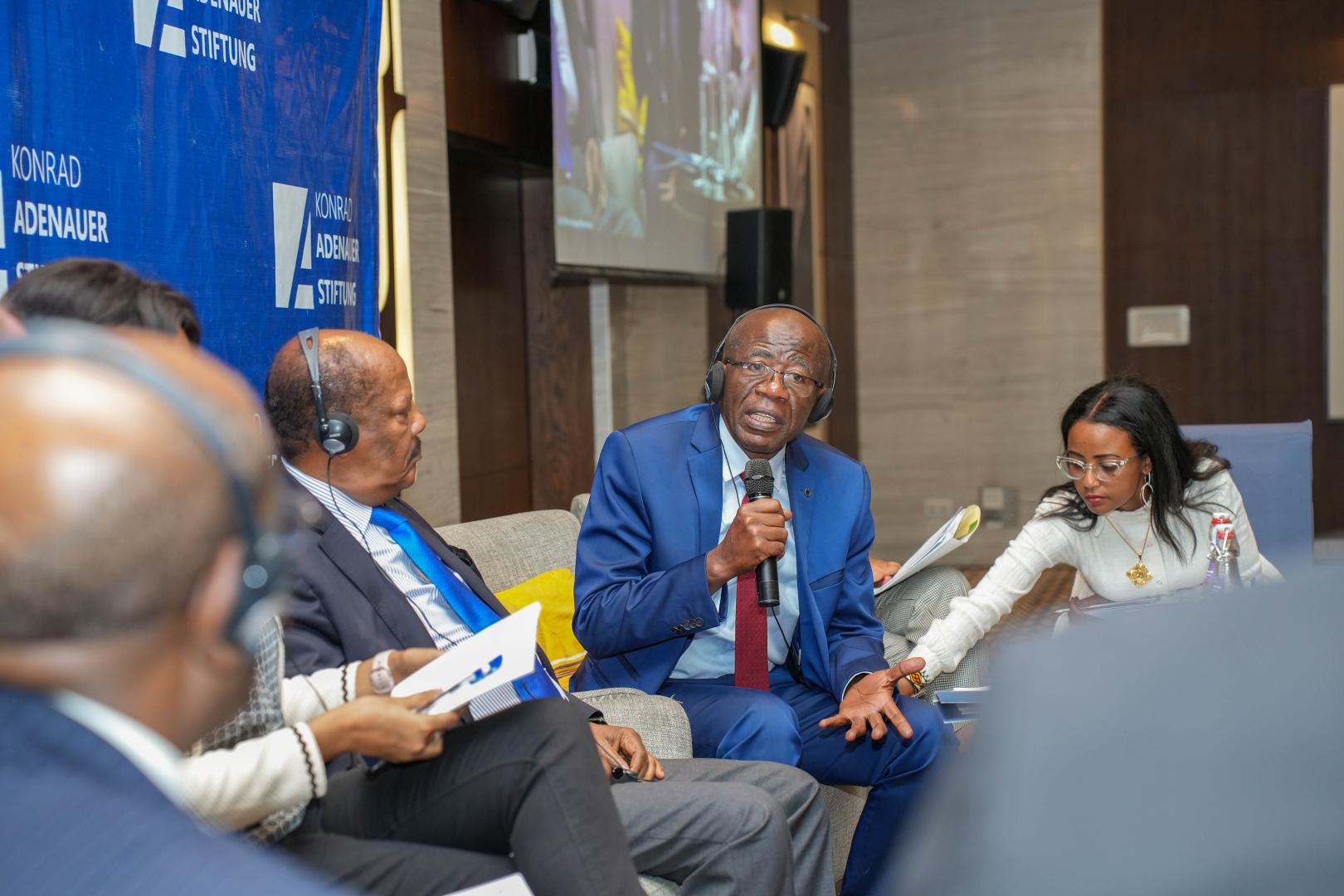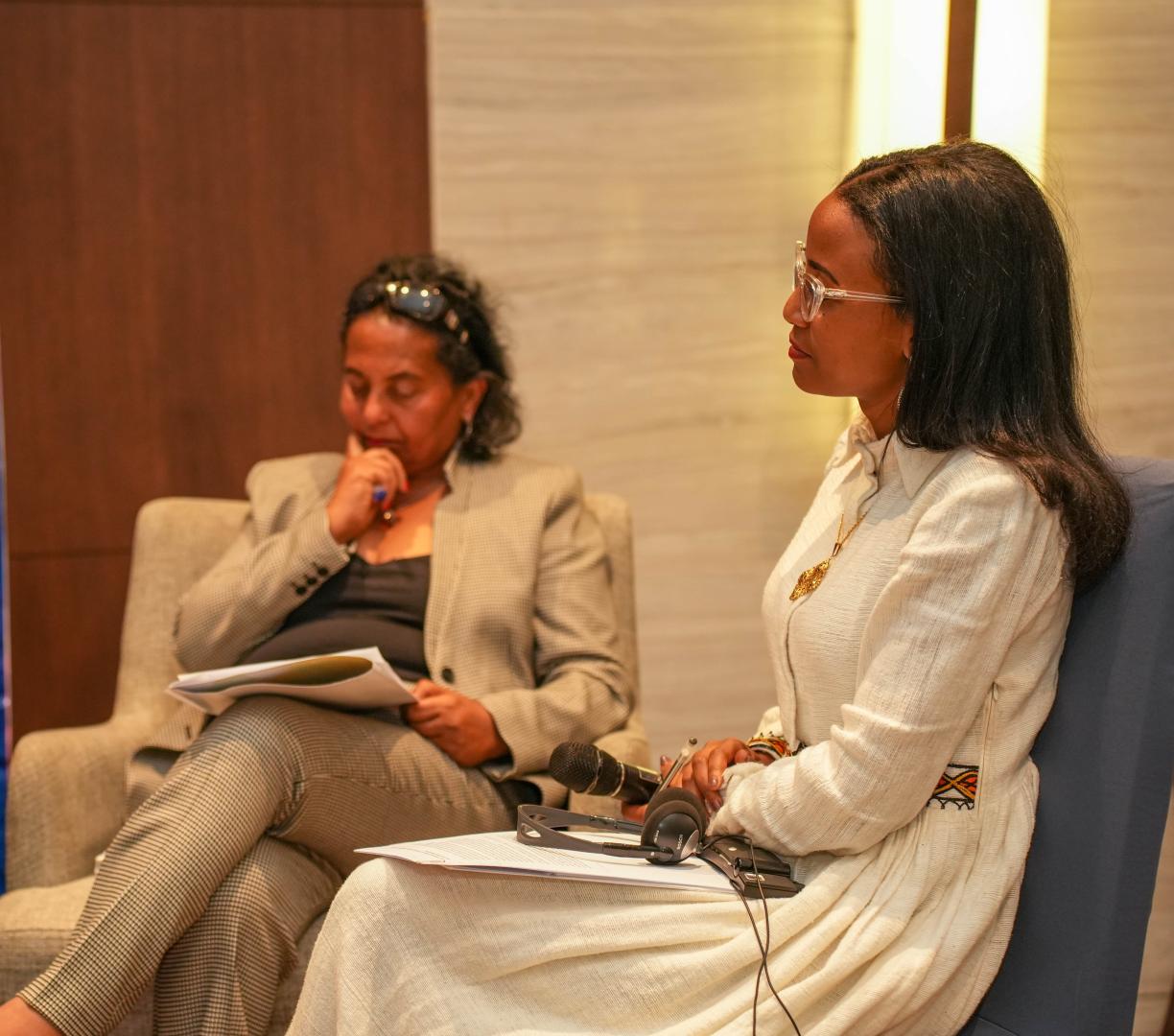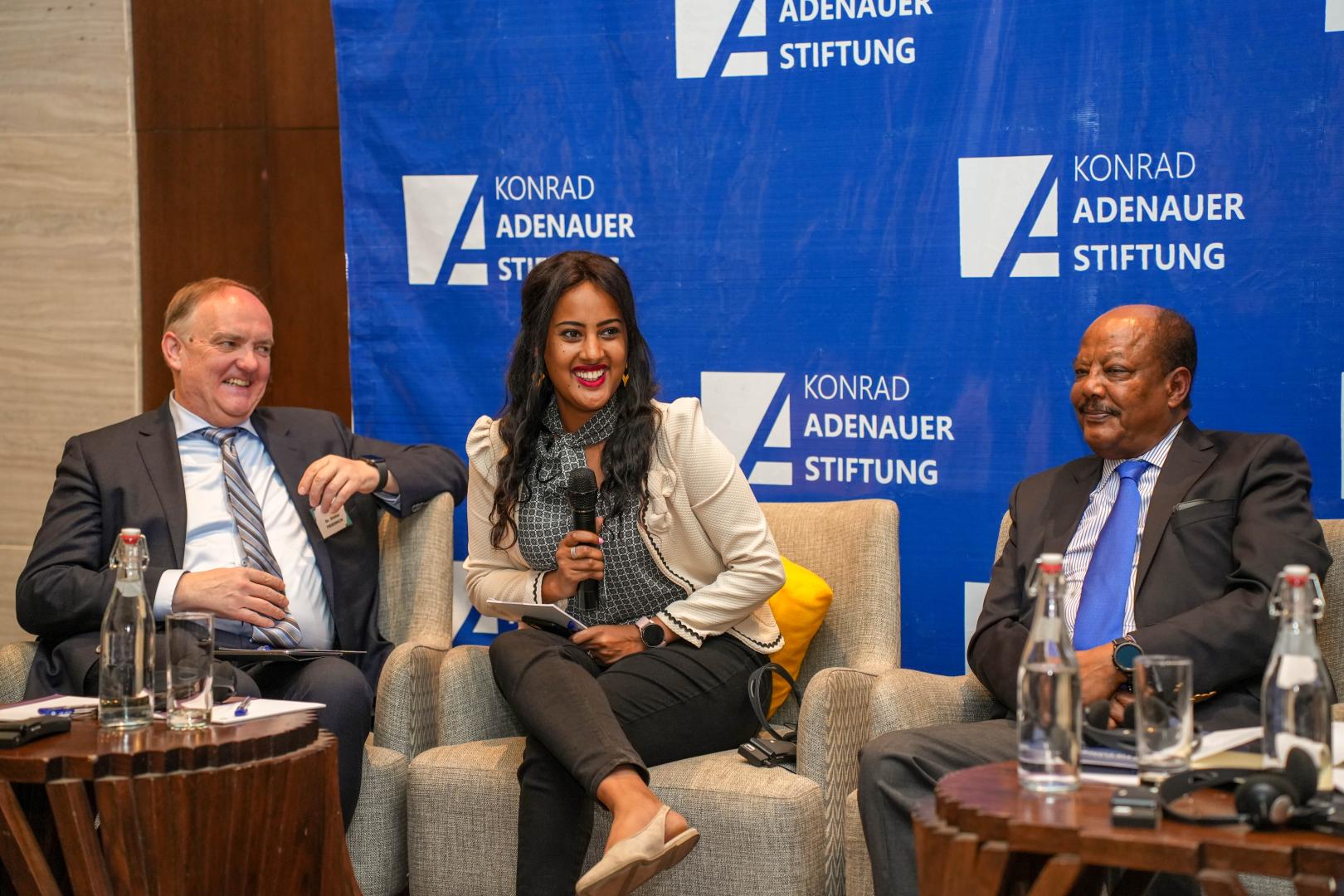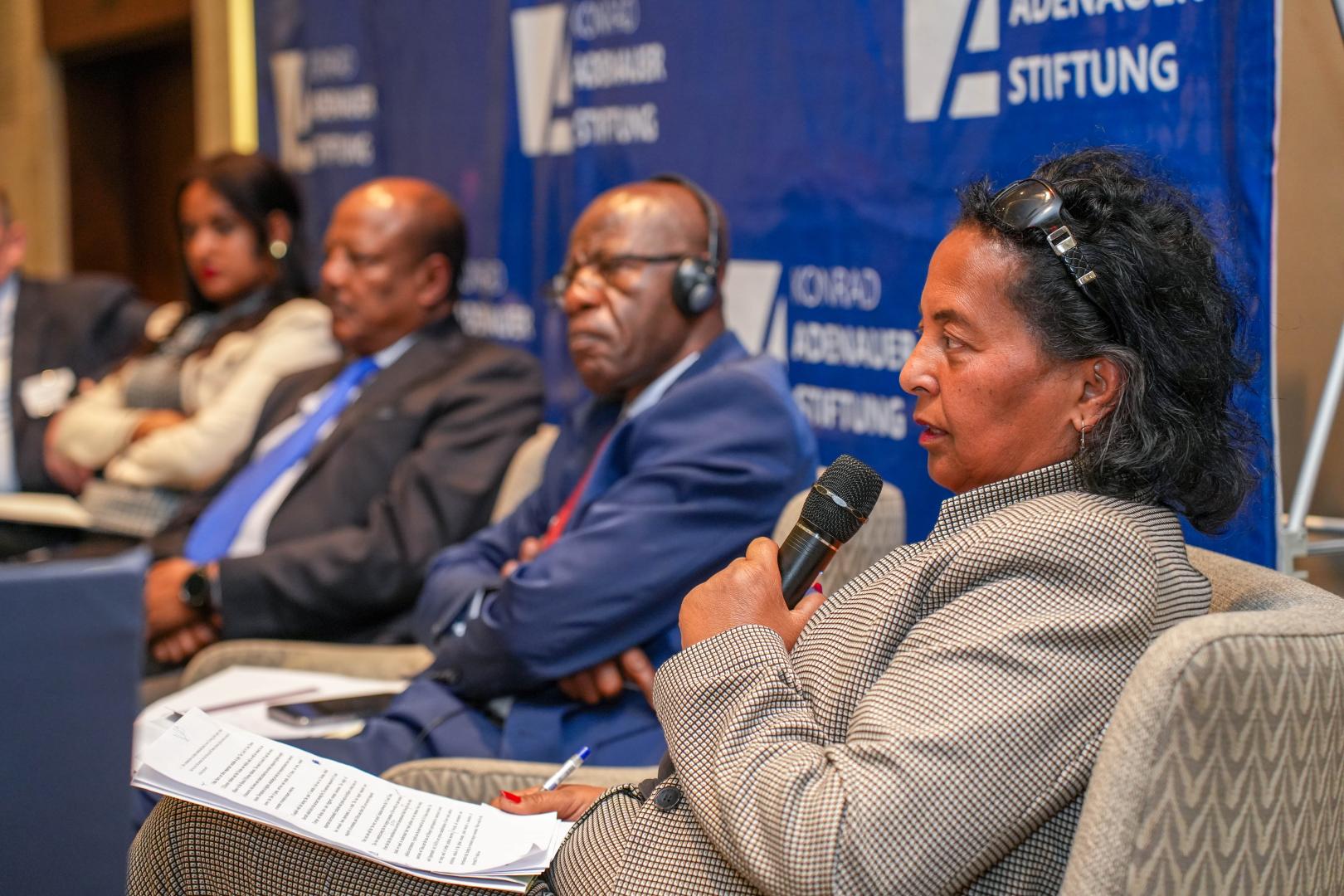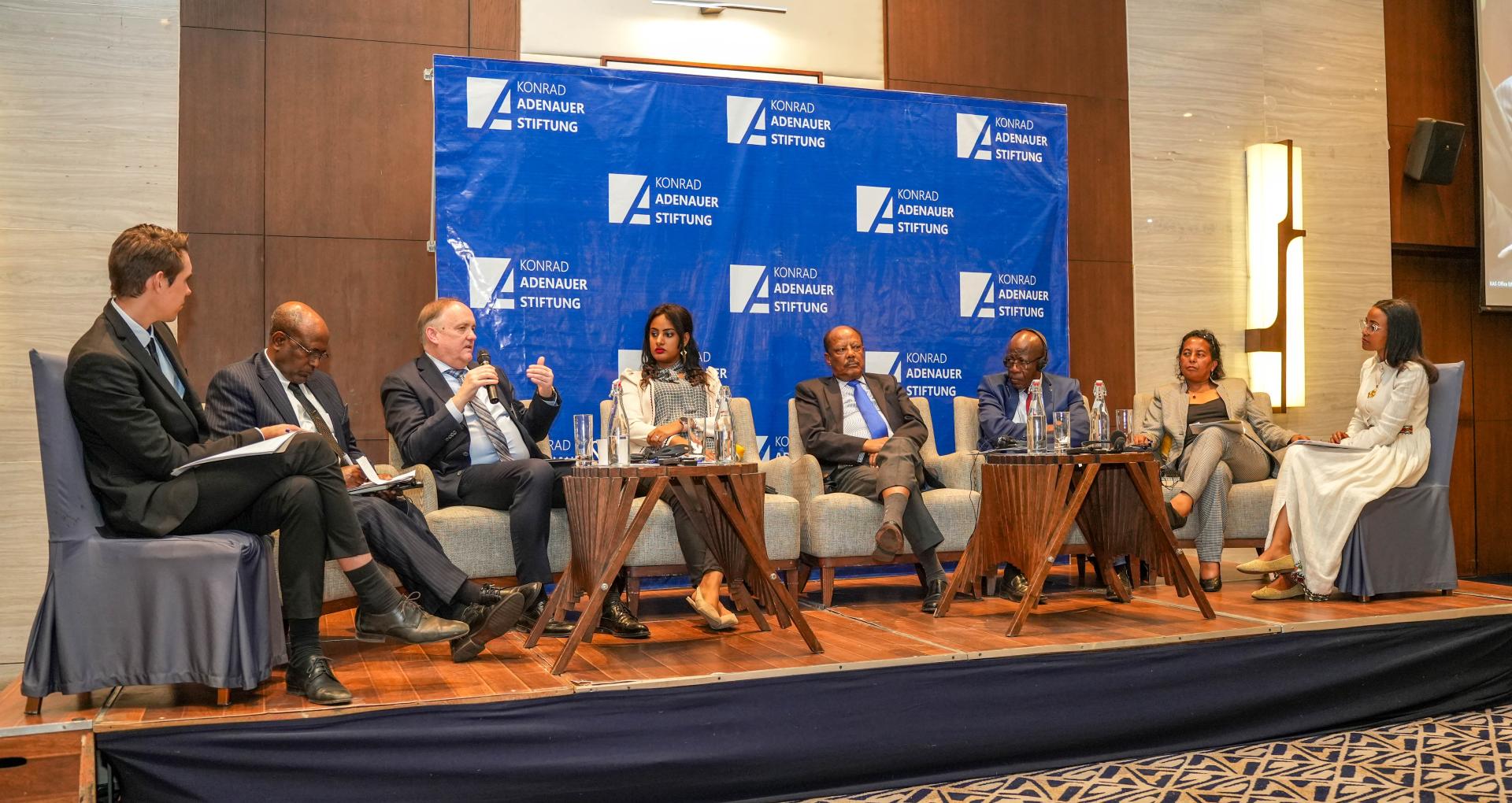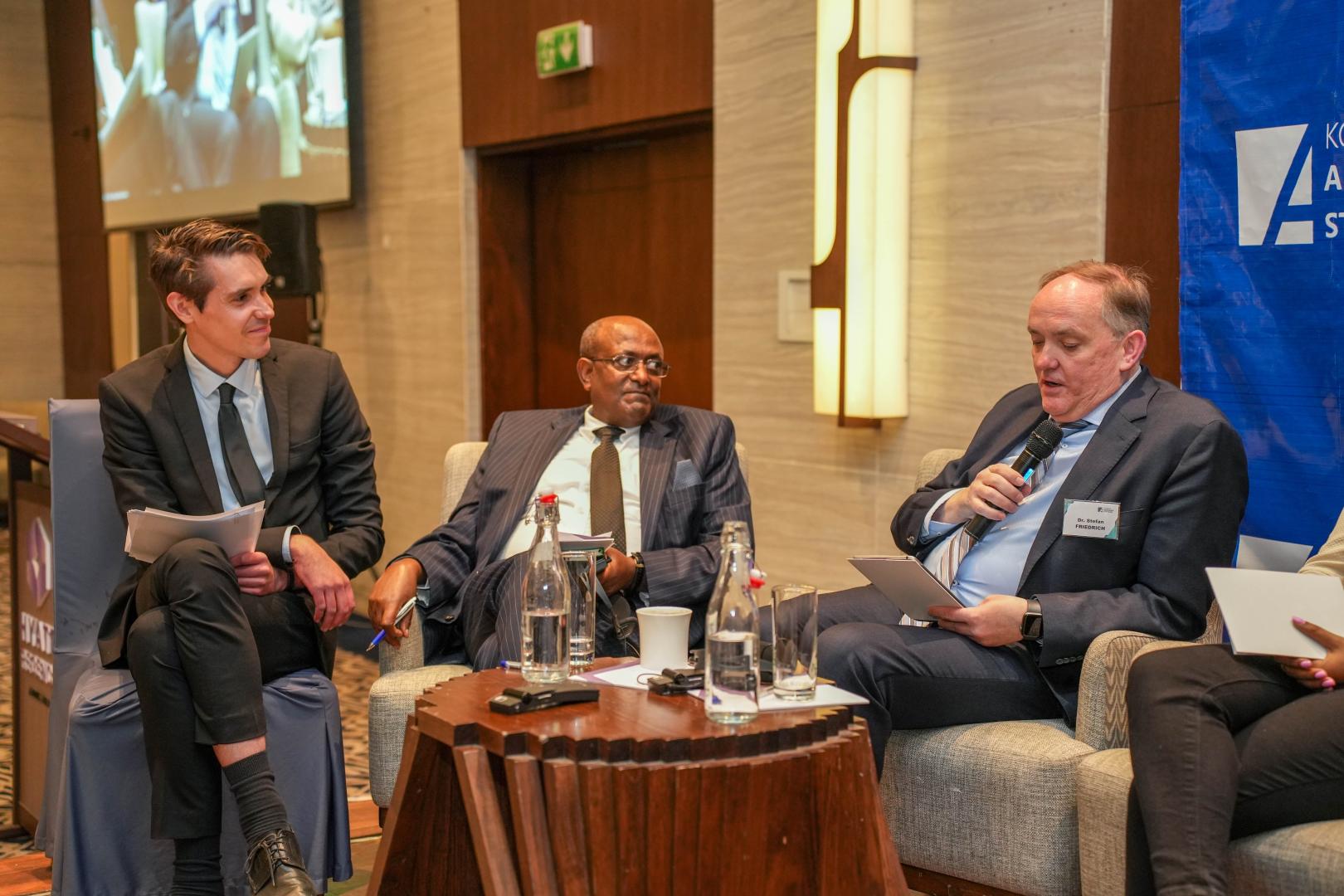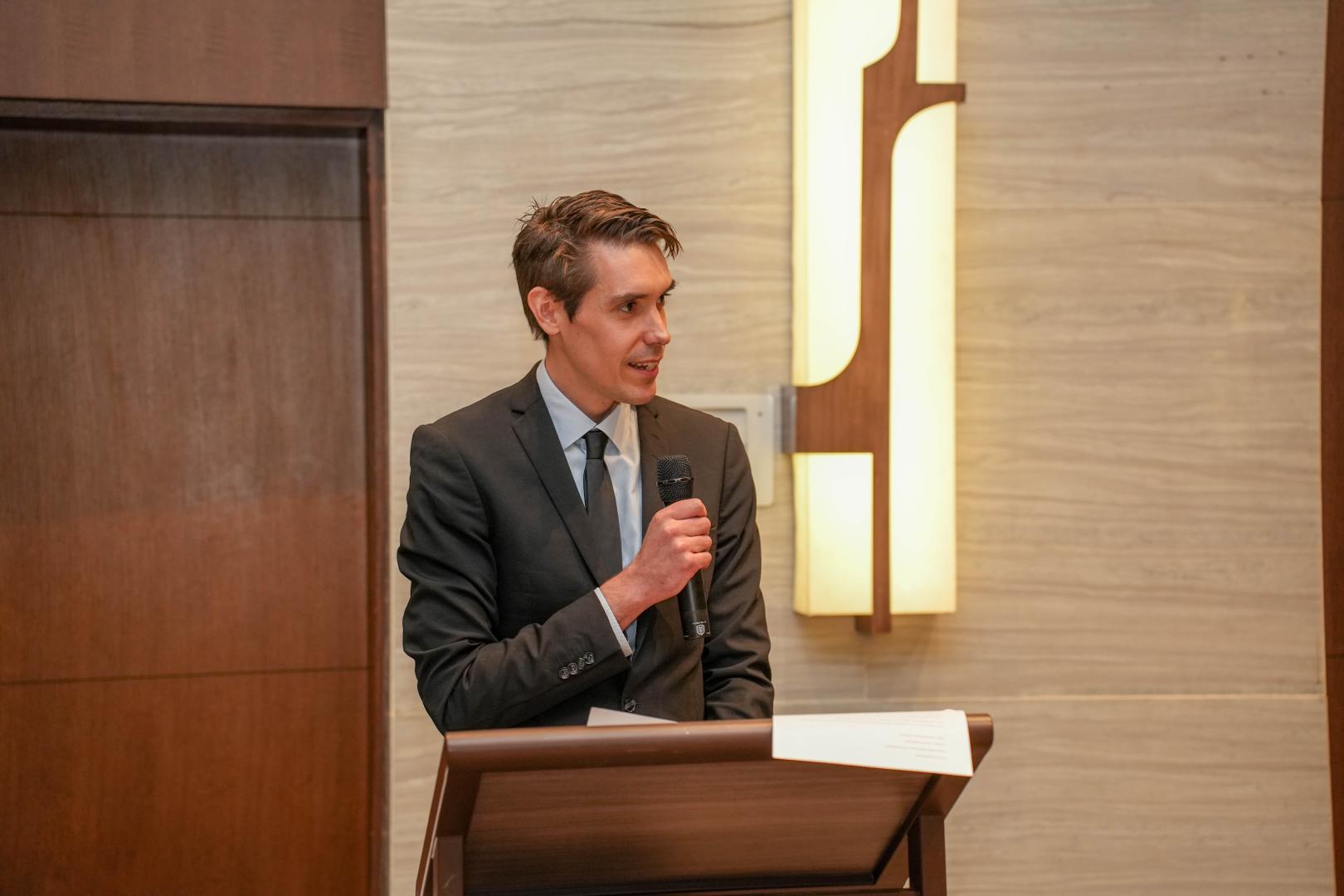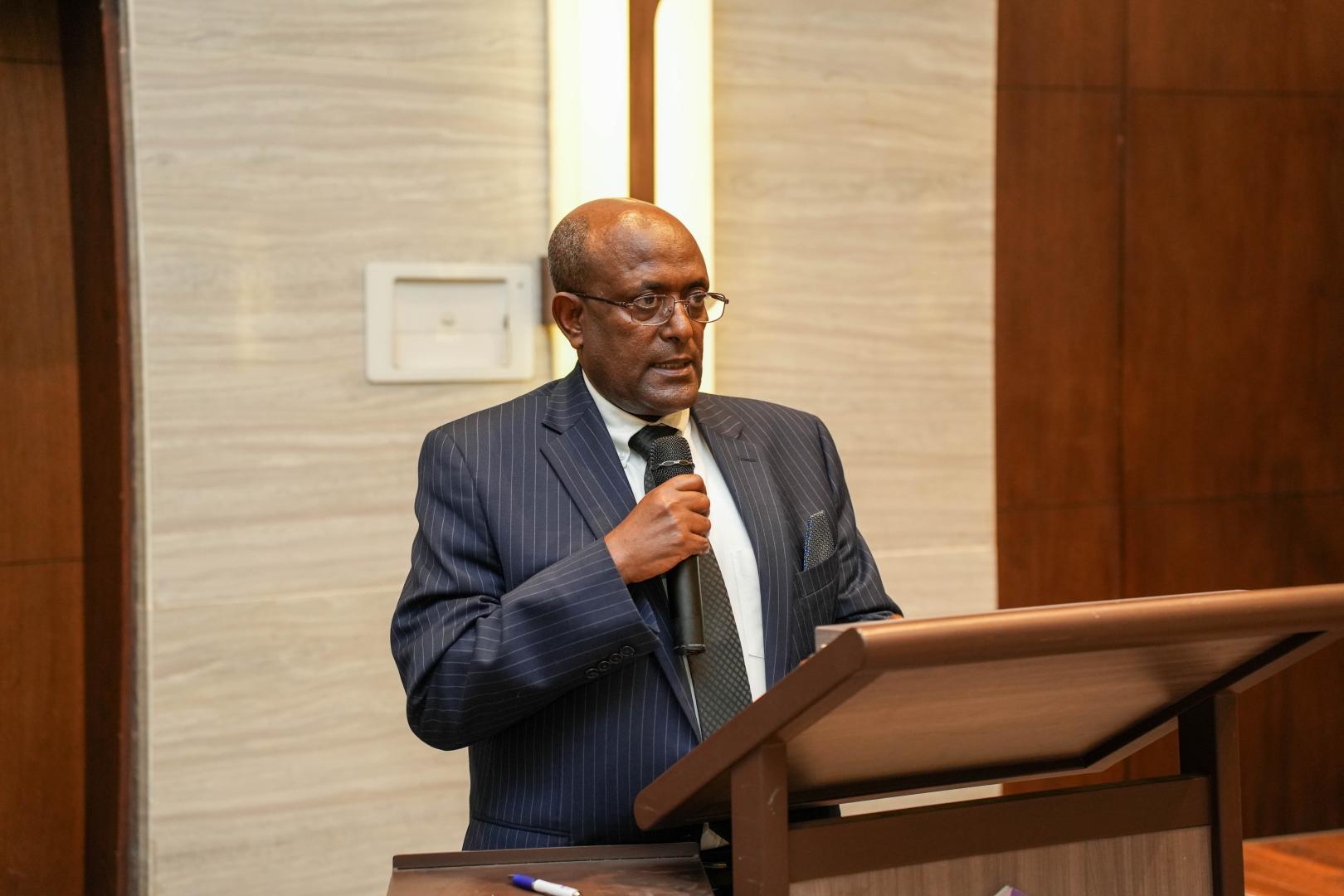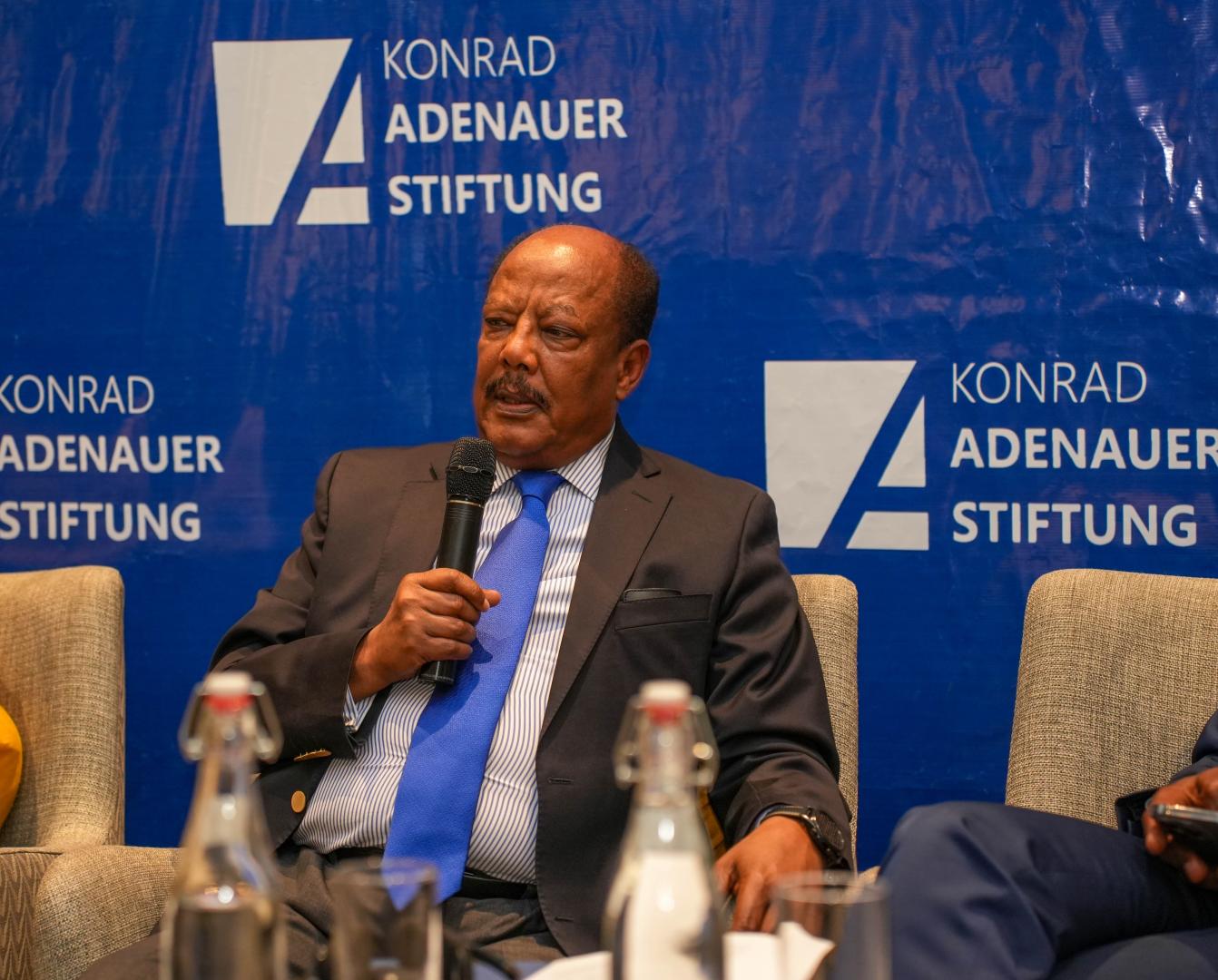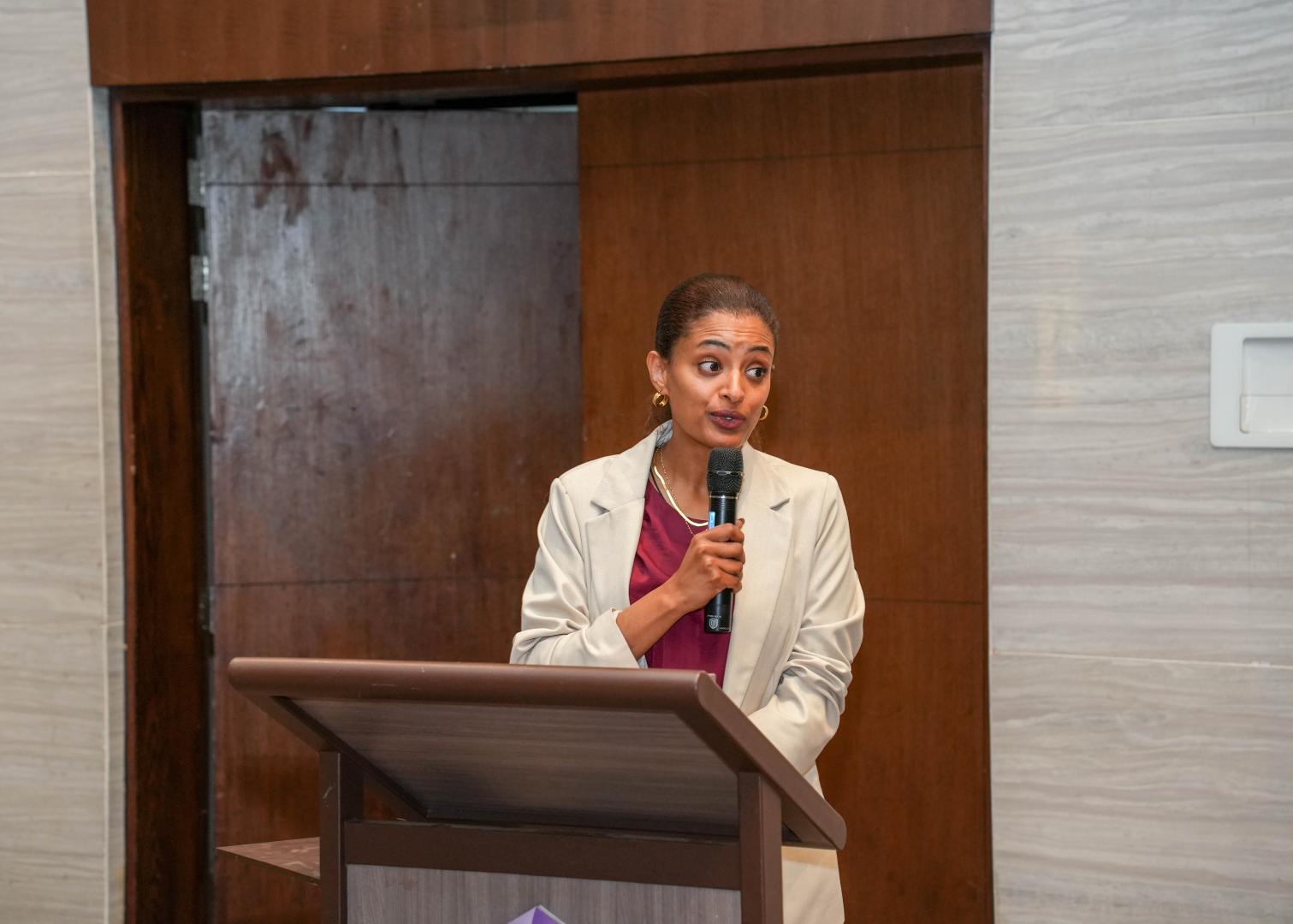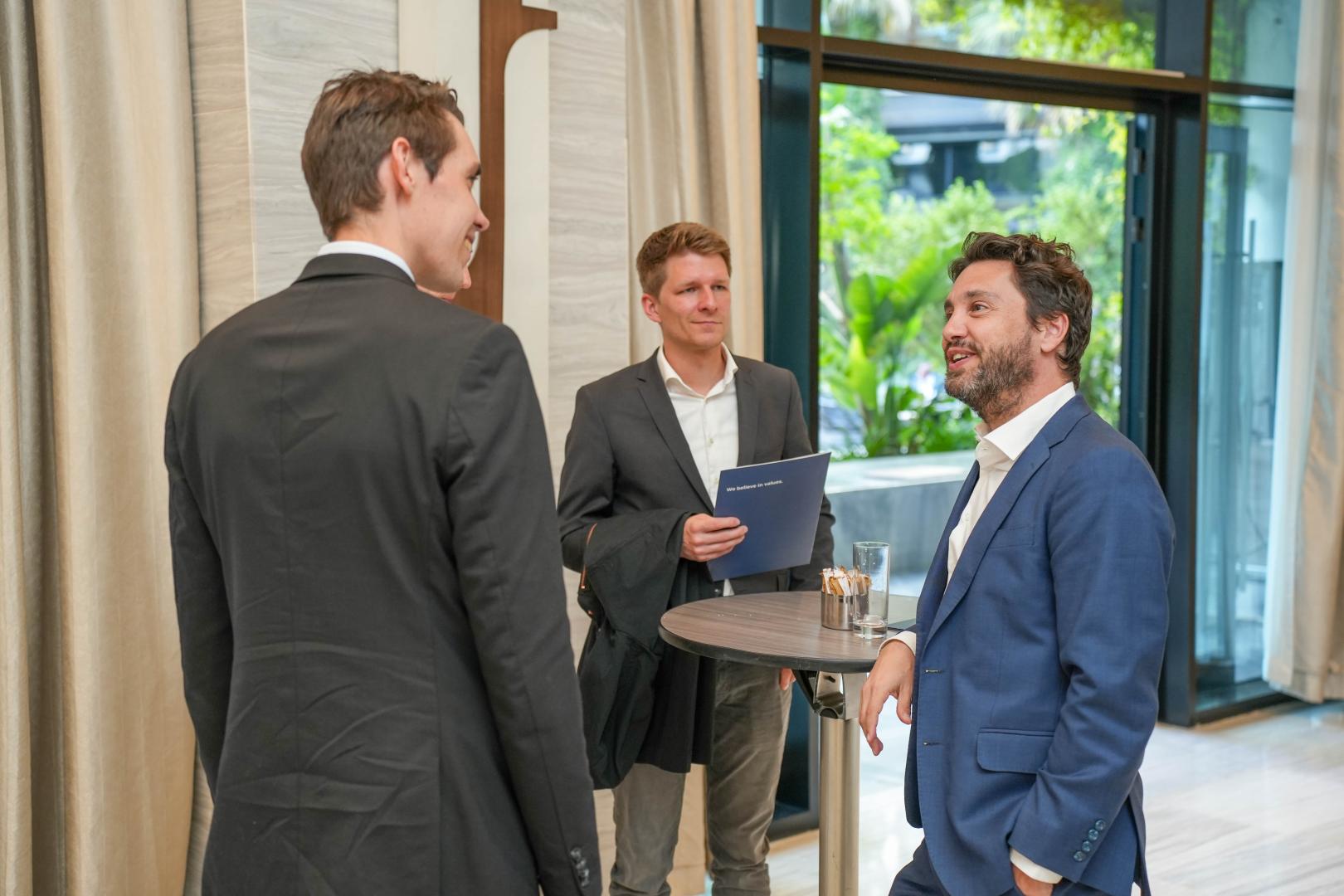Video Recording of the panel discussion
Introduction to the topic:
Following the supposed “End of History” some 30 years ago, many parts of the world witnessed long periods of growth and stability. Mobility and technology connected the world and accelerated globalization. In Africa, starting with the millennium, conflict seemed to be finally on the losing end.
In view of the current challenges, concerns, and threats to the world, these times seem distant. Populism, pandemics, and eventually war have shaken governments and societies. Preventing the negative consequences of climate change remains largely unsolved. Barely noticed outside the African continent, eight unconstitutional changes of government over the past two years brought back a reality that regional heads of state had hoped to have left behind. Moaning under the pressure of high inflation and price increase, people around the world call for a break.
Did the world get off track? If so, through what? Are politics no longer able to deliver?
Driven by the conviction that human being is at its best when it can make use of its full potential, Konrad Adenauer Foundation wanted to reflect in a panel discussion with political decision-makers, experts, and civil society leaders on pressing global issues and envision some answers for the future. How do societies select better leaders? Which role do political parties play? How to bring in the young generation? And why are values so important?
The panel brought together:
HE Ambassador Eshete Tilahun, Director General for European and American Affairs at the Federal Democratic Republic of Ethiopia (FDRE) Ministry of Foreign Affairs. Amb. Eshete is a career diplomat of the Ethiopian foreign service. Prior to his current position, her served, among other things, as the Head of the Economic Section at the Ethiopian Embassy in Berlin, Germany and as Minister Counselor at the Ethiopian mission to the United Nations in New York, USA.
HE Assoumani Y. Mondoha, Ambassador of the Union of the Comoros. Before coming back to Ethiopia as an Ambassador in Ethiopia in 2011, where he had already served as an Ambassador from 1997 to 2004, HE Mondoha was the Africa Director of the Comoros' foreign ministry and had also served for one term as a member of parliament. The Union of the Comoros will assume the annual rotating presidency of the African Union this year. HE Mondoha is a graduate of the international program of France's École Nationale d'Administration (ENA).
Hon. Dr. Dima Negewo, Chairperson of the Standing Committee on Foreign Relations and Peace Affairs, FDRE House of Peoples’ Representatives. Hon. Dr. Nima has been active in Ethiopian politics beginning with the student movement in 1970s and served as a Minister of Information of the Transitional Government in Ethiopia in the early 1990s. The former Chairman of the Oromo Liberation Front (OLF) holds a PhD in Political Economy and was a Research Fellow at the Princeton School of Public and International Affairs. In 2022, he was elected as an independent member to the FDRE House of Peoples' Representatives.
Bitania Lulu Berhanu, First Special Adviser on Youth to EU Commissioner for International Partnerships Jutta Urpilainen. She holds a Master of Arts in Human and Economic Development in African Studies from Addis Ababa University and a Bachelor of Science in Electrical and Computer Engineering from Addis Ababa Institute of Technology. Ms Bitania currently works as a Researcher at the Centre for Dialogue, Research and Cooperation (CDRC) and chairs the Amref Youth Advisory Group (AYAG).
Mesenbet Shenkute, President of the Addis Ababa Chamber of Commerce. She was re-elected as president for a second term in 2022 and is the first female president in the 75-year history of the chamber that has more than 15,000 members. President Mesenbet began her career at the Development Bank of Ethiopia and later headed Abay Bank, a private bank, as its CEO for 7 years. President Mesenbet earned her BA from Addis Ababa University in Management and Public Administration and an MBA from Open University in London, UK.
Dr. Stefan Friedrich, Head of Department for Sub-Saharan Africa, Konrad-Adenauer-Stiftung (KAS). Prior to his current role, Dr. Friedrich was the Director of KAS' Department for Political Dialogue and Analysis. He was the founder and first director both of KAS's foreign office at the United Nations in New York, USA and of its office in Shanghai, China. He holds an MA and a PhD of the University of Heidelberg. His studies in Modern Sinology and Political Sciences included extended research periods at several universities – in Shanghai (Fudan), Paris (EHESS) and London (SOAS).
---
In his keynote speech, HE Ambassador Eshete Tilahun, reflected on the political and economic impact of the war in Tigray, the COVID pandemic, and the war in Ukraine on Ethiopia: “Going forward, we still face many of these variables.” He was hopeful that the signing of the cessation of hostilities agreement between the Federal Government and TPLF could bring lasting peace for Ethiopia and also serve as a message for Africa. “This agreement has multidimensional significance, I hope you agree with me, not just for Ethiopia, but the region and the continent as well. Putting an end to the active conflict has silenced the guns and proved that Africa can indeed find solutions to its own problems,” said Amb. Eshete.
Africa must strengthen its existing mechanisms for peaceful resolutions of conflict, said Amb. Eshete. Including the continent's youth was part of that. He underlined the FDRE Government's efforts in this regard and shared his concern about growing external pressure, media campaigns, and misinformation on Africa that would often play a role in regional conflicts, including the war in Tigray. Two of Africa's priorities for recovering from the economic downturn after COVID must be embracing the opportunities modern technology and the African Continental Free Trade Area (AfCFTA) offer. While the landscape for international partnership for Africa proved difficult in view of the global competition of powers, Africa must own its problems and take responsibility, said Amb. Eshete, and better work as a collective body.
In the following panel discussion. Amb. Eshete elaborated on the war in Tigray and compared its destructiveness and magnitude historically to the Italian invasion of Ethiopia in 1935. While internally recovering from the conflict, Ethiopia cannot be absent from the international arena, given its importance as a major regional stakeholder and its size as Africa's second most populous country. However, he was hopeful that Ethiopia could assume a strong international role in the long run if it continued the reforms started under the government of Prime Minister Abiy Ahmed: “If we manage to keep on the reform process that we endeavor to and make progress on that, we will have definitely an impactful contribution in the diplomatic and international relations and will take the African voice as a collective body to the international platforms.” He emphasized the significance of the African Union (AU) for the member states although the union was far from being complete: “It is an institution in the making, but it has served the purpose for which it stands and for which it was created with many plus and minus.” Whether the AU would receive more responsibility from the member states in the future is something that would depend on the next generation, said Amb. Eshete. A mandate for the AU to represent its member states is something that would need to be clearly defined.
The Ambassador of the Union of the Comoros, which assumes the annual rotating AU presidency in February, shared the goal of strengthening Africa's voice in global policy fora through the AU. “Africa must be present at the G20 because the voice of Africa must weigh on the march of the world. We think and we believe that when Africa is absent in the decisions of the world, it is like a person who has lost a foot, so it will walk very badly,” said HE Amb. Assoumani Y. Mondoha. The Comoros' AU presidency would focus on four priorities and thereby on continuing the efforts of previous presidencies and the AU Commission:
1.) the acceleration of the AfCFTA which is the AU theme of 2023
2.) security
3.) climate change and the environment
4.) political affairs and elections with more than seven elections in 2023
"The Union of Comoros is not going to reinvent the wheel. It will follow the line drawn by the African Union through the Agenda 2063,” said Amb. Mondoha.
HE Mondoha was concerned about the growing number of unconstitutional changes of government in Africa over the past two years and shared the history of his country that had experienced several coup d'états in the 1980s and early 1990s. The Union of the Comoros found a solution with the concept of rotating presidencies. For more than 25 years, the country had now been peaceful. Building on the decisions of the extra-ordinary summit in Malabo, Equatorial-Guinea last year, the upcoming AU summit in February in Addis Ababa must focus on strengthening existing and developing new mechanisms to prevent unconstitutional changes besides the sharp sword of membership suspension.
Asked about the Russian aggression in Ukraine, HE Mondoha explained the reasons why his country supported Ukraine twice at the UN level. The Comoros had condemned the aggression in March 2022 and supported Russia's suspension from the UN Human Rights Council in April: “We consider this to be law. (...) Force must not be superior to law.” From his view, one of the consequences of the war must be to further push for the reform of the United Nations: "We believe that this is a matter of concern to everyone. That's why Africa, the African Union, is pushing for this reform at the level of the Security Council, because today in the name of the veto a country can say, I do what I want. No, we can't go on like this. So that's why we, it's in the context of world balance that we said to ourselves: No, we cannot be on the sidelines of the negotiated solution.”
Reflecting on the current global crisis and the reasons how the world got there, the Hon. Dr. Dima Negewo, Chairperson of the foreign affairs committee in the Ethiopian parliament, said that for him the underlying causes are the crisis of the liberal order that had been built after World War II. The equilibrium between state, labor, and capital produced a dynamic economic growth for many countries, especially in Europe, but it eroded over the past 30 years. In his view, the liberal order failed to adjust to the new realities domestically and internationally. Dr. Dima expressed his concern about the decline of major political parties in Europe. “For the first time in Germany now, we have a three-party coalition government, for the first time since the war, which is very difficult to manage. In Italy, we have more or less a Neo-fascist regime and the right is surging in France and in many other major European countries,” said Hon. Dr. Dima. He said, he does not believe that individualism was behind the growth of populism around the world as one had also seen in Brazil and the US, but rather growing nationalistic views.
Talking about the role of modern technology and social media, Hon. Dr. Dima emphasized their positive benefits, but said that social media poses problems to traditional politics: “What I see in social media, it has really been a challenge to traditional forms of political organization. Individuals networking on the social medium, people think is enough to conduct politics.” But this is not what politics requires for finding sustainable compromise, mobilizing majorities, and negotiation – and this is a concern given that the current young generation came of age with modern technologies and social media. “The current youth in a way lacks a certain level of depth because social media doesn't produce depth, depth of knowledge, depth of analysis, it's just a few sentences,” said Dr. Dima.
Bitania Lulu, First Special Adviser on Youth to EU Commissioner Urpilainen and youth advocate in Ethiopia, disagreed “100 percent” with the assumption that the young generation lacks depth. She said, today's young generation faces other challenges than previous generations: “For the current generation, I don't think academic excellence is the only important thing, but they have to equip themselves with the leadership skills and the various capacities that they need.” Young people, aspiring to change politics and promote the interests of the youth, should be solution makers, game changers, and resilient. “When they don't invite you to the decision-making table, you bring your own folding chairs, you demand your space to be there,” said Ms. Bitania. Accessibility to digital networks had given rural youth in Africa the possibility to participate, influence politics, and mobilize themselves. She demanded the AU to push its member states to all have a national youth advisor for a meaningful engagement of the domestic youth in politics in view of the many disadvantages and exclusion from political decision-making that Africa's biggest demographic group faces. More than 60 percent of the population in the large majority of African countries is younger than 25 years.
Mesenbet Shenkute, President of the Addis Ababa Chamber of Commerce, shared her concerns about the global economic outlook in 2023. “The war in Ukraine literally added fuel to the already burning fire of the world,” she said. “What will come after months, God knows.” President Mesenbet criticized the use of trade barriers as political instruments as one could see for example between the US and China. “We need to understand that trade policies are not immune from being political instruments. A good case point is the AGOA from which our country was banned,” said President Mesenbet. The UN system was imperfect to her, she said: “The UN Security Council could not stop the war in Ukraine, neither could it bring peace.” Therefore, she was critical about Ethiopia accessing the WTO. “We have to think twice to be a member of the WTO,” said President Mesenbet. Looking to the future and the recovery of the Ethiopian economy, she expressed her hope for the continuation of the Ethiopian government's economic reform process. “Provided we take care of all these reforms and implement them with better people, skilled people, with expertise, we can come up again,” said President Mesenbet.
Asked about the different global crises, Dr. Stefan Friedrich, Head of Department for Sub-Saharan Africa of KAS, said: “Indeed, we couldn't have much imagined that something like the Russian aggression against Ukraine could happen. The fact that something like COVID could happen, I think we were much better prepared.” Existing scenarios about the potential of a global pandemic had not been taken seriously enough. Regarding the Russian aggression in Ukraine, Germany and Europe could have also been prepared, but they remained in a wishful thinking. “We were very used to following the sentence: 'We are surrounded by friends and there can't be any conflict anymore or military conflict',” said Dr. Friedrich. “Now, we have to adapt to this reality and we have to face this.” Discussing the question of the potential shortcomings of the liberal order, Dr. Friedrich argued: “Yes, we have crises, several of them, but I think the democracies also proved that they are in a position to cope with crisis and to make changes from within. This is something that many authoritarian regimes do not have. They don't have the civil society, the youth, and the integration of formats that are correcting problematic developments.” Dr. Friedrich said: “These authoritarian regimes, they face severe crises also at the moment and that is certainly not a coincidence. The world is getting more and more complex, more complicated, more interconnected. If something happens in Africa, it might have influences also in Europe or vice-versa.”
Populist leaders benefited from promoting fake simplified solutions to highly complex problems. Given the complexity and interconnectedness of the world, he stressed the importance of political parties for finding sustainable social compromise: “We do need compromise. You can't rule a complex society on just one person. You have to have compromises,” said Dr. Friedrich. “I think political parties can really help to shape the politics of a country and I would always prefer political parties based on common beliefs to a political party which is only there to elect one individual or bring one individual to power, and if he is not elected, then the next one will create a new political party.” Dr. Friedrich underlined the growing interest for Africa in German politics and the changing views of the continent: “In our parliamentary group, (…) we have a working group on Africa. We have had this working group on Africa for a long time, but now this working group consists of more than 40 members of parliament. (...) The group now has changed dramatically. There are still people who are working on development aid in this group, but there are people working in the defense committee, there are people working in the trade committee, there are people working in the health committee, and they see that for their expertise in the German Bundestag, Africa plays an important role. And that is a fundamental change of the view towards Africa.”



